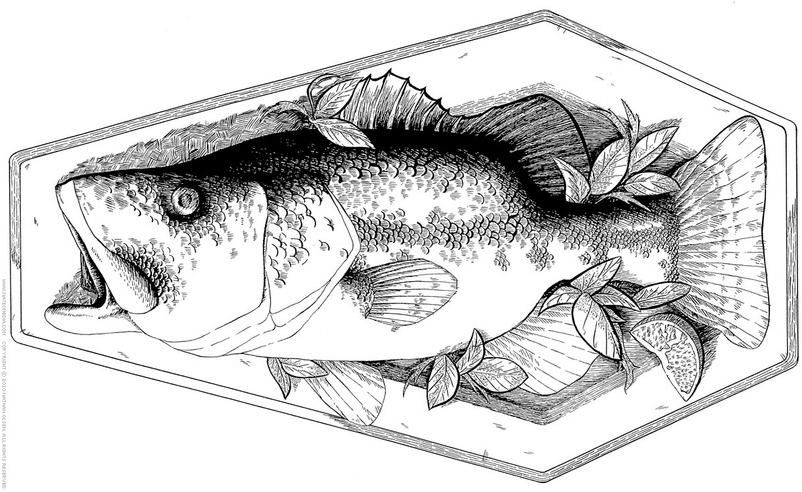Addie as Odysseus? - William Faulkner's As I Lay Dying
The chapter told from Addie’s perspective in Faulkner’s As I Lay Dying came as quite a big surprise to me. Sure, reading a chapter narrated by a dead person was strange, but it was more so the contents of the chapter themselves that took me aback; Addie Bundren was nothing like she had previously been made out to be. In the chapter narrated by Addie, she comes off as a callous, detached, spiteful woman who hates her life and everything in it. Whereas any depiction of her from before this point from any of the characters showed her as a quintessential representation of motherhood. Such a false representation of Addie’s character goes to show just how effective Faulkner’s modernist style of narration is in emulating real life, where you’ll almost never know the whole truth about a person.
What makes Addie’s chapter even more interesting is the way that it much more overtly parallels Homer’s The Odyssey. By subtly revealing that Addie had been unfaithful to Anse, Faulkner recreates the famous story of Agamemnon from The Odyssey—an epic that’s among the most iconic hero’s journeys out there. Up to this point in As I Lay Dying, the hero’s journey narrative has been largely missing or hard to really pick apart. But looking at As I Lay Dying next to The Odyssey reveals an interesting way to interpret the novel.
Maybe it’s a bit strange or outlandish, but having Addie be the “hero” in As I Lay Dying sort of makes sense when looked at in the context of The Odyssey. Disregarding Agamemnon and his wife for now, As I Lay Dying is more broadly a story about a journey—more specifically, a return to a long-lost home after many years or hardship. The way we perceive characters is all about their representation in a text, so if we make Addie the protagonist, it’s easy to see how Anse and the rest of the family could be depicted as literal “burdens” that do nothing but get in the way of Addie’s happiness. It’s a very cynical way of looking at family and motherhood, but a way nonetheless. Framing As I Lay Dying as a story about Addie’s—albeit posthumous—return to her home is an interesting thought, though perhaps it makes the task of lining up each stage of the hero’s journey harder, since most of them would take place long before the book even begins.
Perhaps a more straightforward way of reading of As I Lay Dying would have the Bundrens be the so-called "hero" as a collective, although I think having Addie (or even someone else) take center stage makes for a more interesting dynamic—one where we as readers are forced to look beyond the depictions of the characters that we're given and truly immerse ourselves in the world of the novel; I've always found that the books that make you think are the most rewarding, and Faulkner's novel does just that.


I agree with a lot of your post. To me it seems that Jefferson is a clear analogue to Ithaca, the home of Odysseus. This would align with the notion that Addie is the Odysseus-equivalent in the novel. However, as a book, with multiple narratives, it makes sense that the role and obligations of the "hero" are divvied up over the collective group. I like to see the Bundren family as a sort of modern-day Argonauts who are all "heroes" in their own regard. Keep up the good work.
ReplyDeleteHi Josh! I like your comparison between the characters from As I Lay Dying and The Odyssey. Though I have never read The Odyssey, I have a basic understanding of the story and I think you did a good job finding parallels between the two. In your final paragraph, you mention that it is possible that As I Lay Dying is following all of the characters collectively as the "hero". I think that this is an interesting viewpoint and it makes a lot of sense. Great post!
ReplyDeleteHi Josh, great post. I think that the direct comparisson to the Odyssey is especially compelling, especially given that the story is a journey to one's homeland with a motley crew of heroes who, while following the same general goal, have their own motivations, much like the Odyssey. I also like you drawing attention to Addie's chapter- I agree that this really clearly shows the modernist elements of the book. Great blog!
ReplyDeleteHi Josh. I found your blog post really interesting and although I've never read The Odyssey before, I was able to understand the parallels between both books. I liked your idea of Addie being the hero of the story. Throughout the book, Addie is a very minor character who has so much importance and it's interesting how much power a dead person can have. Great post!
ReplyDeleteHi Josh, I completely agree with you that reading Addie's chapter was strange. I had an image in my head of who she would be, and I was completely wrong. I have never read the Odyssey, but I was able to understand how the Odyssey could connect with As I Lay Dying. You did a great job with this blog post. It was very easy to follow.
ReplyDeleteThere's no doubt that Campbell's monomyth looked heavily at The Odyssey and Odysseus, among other stories, and the maybe-accidental appearance of the monomyth-with Addie at the center-in As I Lay Dying might just be another example of the recurrence of this pattern in the human psyche. I think that this idea can be taken much further than you give yourself credit for!
ReplyDelete